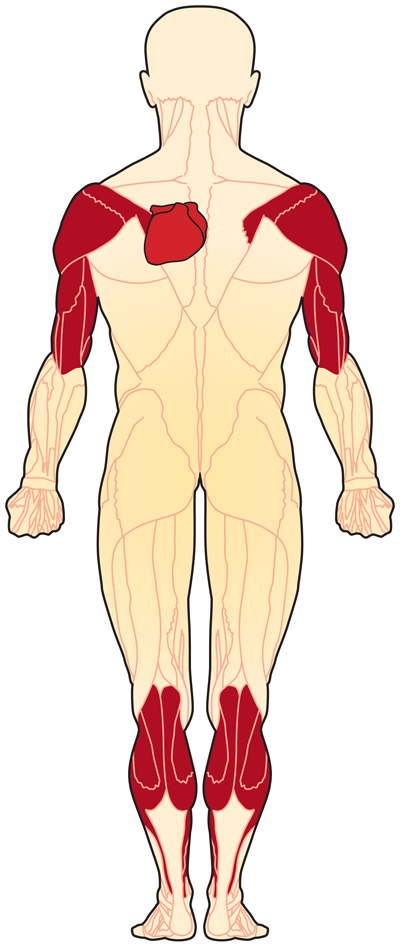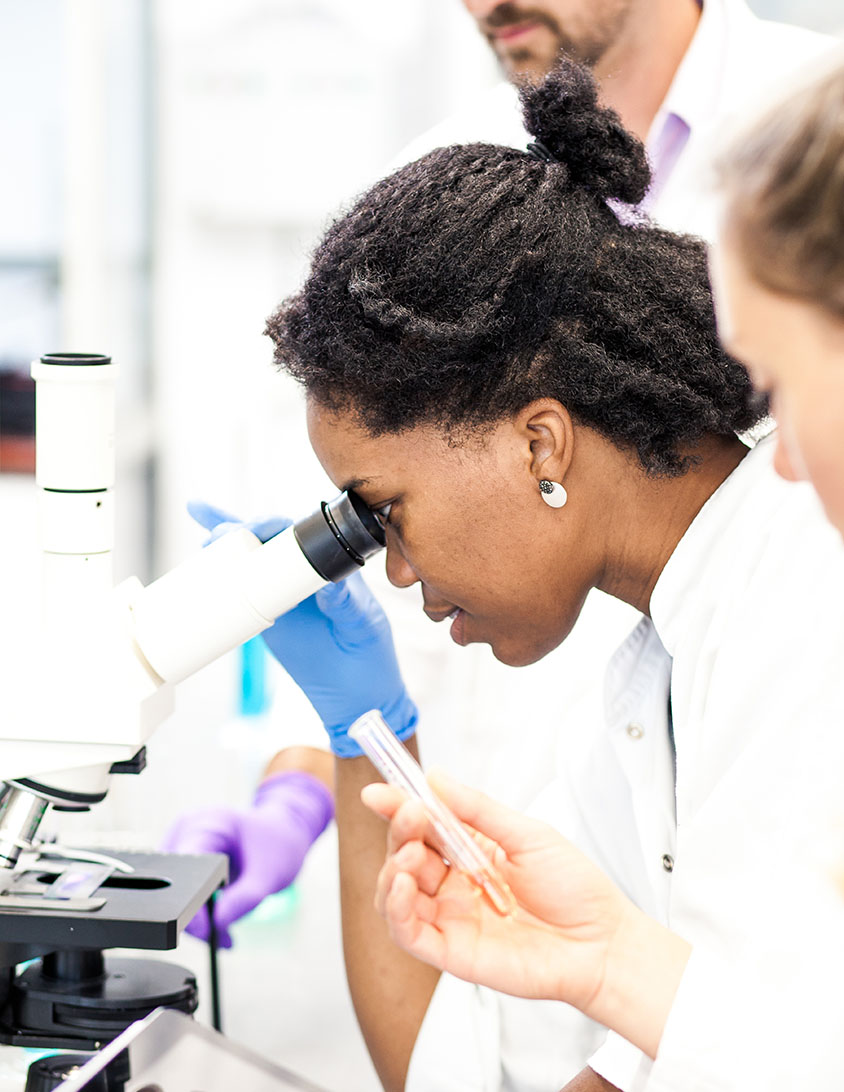
Emery-Dreifuss Muscular Dystrophy (EDMD)
Emery-Dreifuss Muscular Dystrophy (EDMD)
 What is Emery-Dreifuss muscular dystrophy?
What is Emery-Dreifuss muscular dystrophy?
Emery-Dreifuss muscular dystrophy (EDMD) is one of nine types of muscular dystrophy, a group of genetic, degenerative diseases primarily affecting voluntary muscles. It is named for Alan Emery and Fritz Dreifuss, physicians who first described the disorder among a Virginia family in the 1960s.
What are the symptoms of EDMD?
EDMD usually shows itself by age 10 and is characterized by wasting and weakness of the muscles that make up the shoulders and upper arms and the calf muscles of the legs. Another prominent aspect of EDMD is the appearance of contractures (stiff joints) in the elbows, neck and heels very early in the course of the disease.
Finally, and very importantly, a type of heart problem called a conduction block is a common feature of EDMD and requires monitoring. For more, see Signs and Symptoms.
What causes EDMD?
EDMD is caused by mutations in the genes that produce proteins in the membrane surrounding the nucleus of each muscle cell. EDMD can be inherited several different ways, although symptoms are essentially the same for all inheritance patterns. For more, see Causes/Inheritance.
What is the progression of EDMD?
EDMD progresses slowly. Muscle weakness may not become a source of difficulty until later in life, although cardiac problems are usually detectable by age 20. Intellect isn’t affected.
What is the status of research on EDMD?
Researchers have identified the genes that, when defective, lead to EDMD, and MDA-supported scientists are building on that knowledge in a variety of ways. Areas of genetic research in EDMD include gene therapy, gene silencing and cell therapy.
At the same time, other MDA-supported scientists are studying ways to preserve muscle despite the presence of a degenerative disease. For more, see Research.

